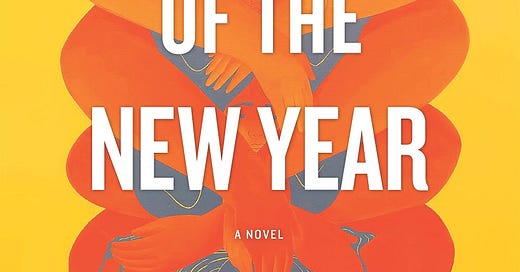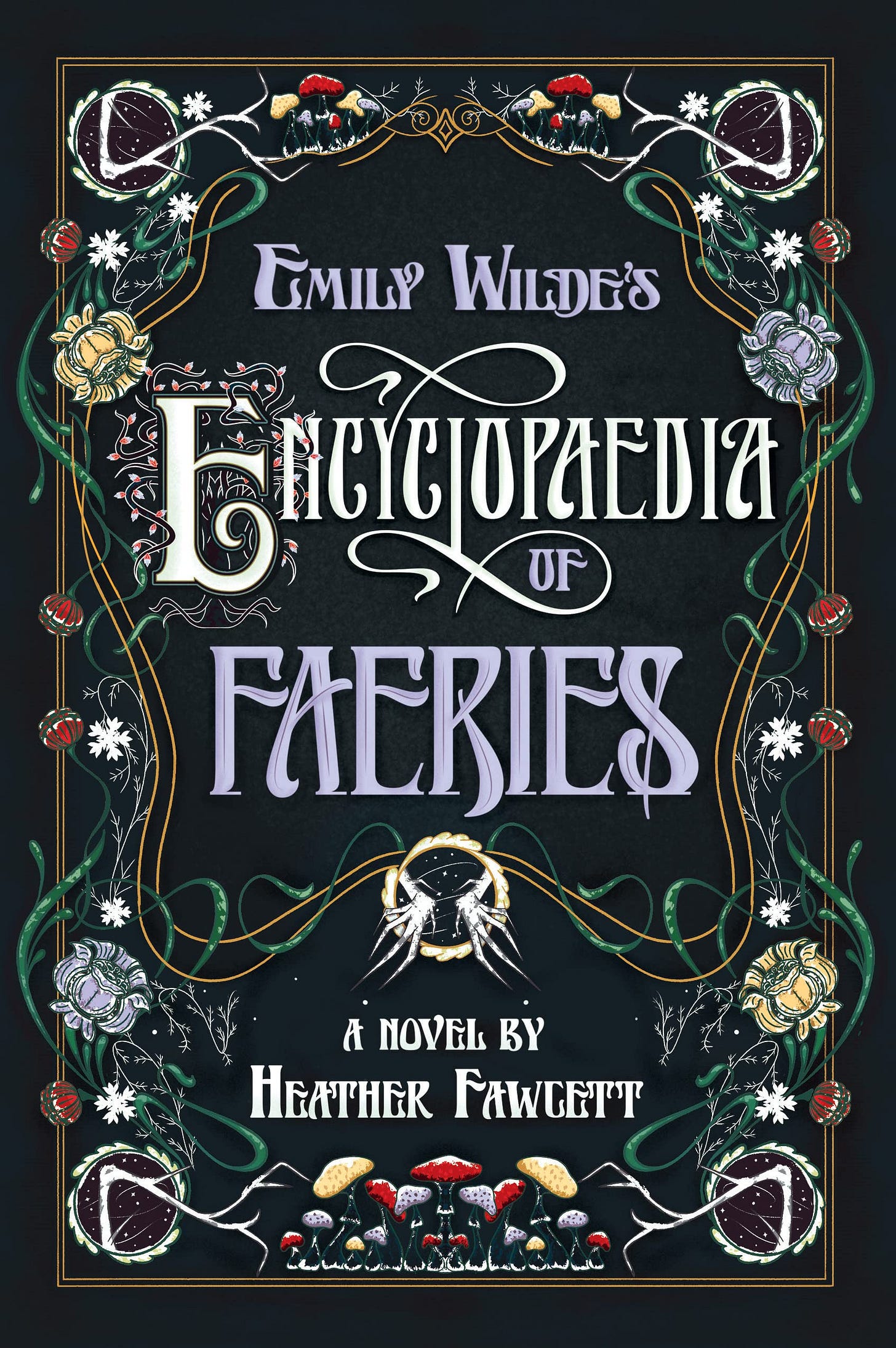Not gonna lie, friends. Putting together a post like this takes quite a bit of time and energy. It would be great if you would show your support by becoming a paid subscriber. So appreciated!
Happy Thursday, lovely readers! I decided to try a new thing for this mid-week post—a round-up of what I’ve been reading lately. I used to post this sort of thing more regularly on Instagram, but, you know, if I can avoid one more ad for miracle skin cream or a super-duper diet plan that uses my hormonal profile to help me lose weight, why not?
I only talk about the good books. I don’t do negative reviews because I’m an author myself and, why? Why put in time and effort for something you don’t like? Please feel free to comment with what you’ve been reading lately—womething you loved or that made you think or that changed your life.
Daughters of the New Year, by E.M. Tran.
I love good historical fiction, especially of a place or a time that I know nothing about—i.e. someplace besides fucking World War II. Do you feel me? Have we not fully and completely covered WWII from a fictional perspective? Do a search for historical fiction and 75% of the books will be about WWII.
Daughters of the New Year is, thankfully, not about WWII. It starts in contemporary time with a family of Vietnamese immigrant women in New Orleans. The focus is on mother-daughter dynamics, all framed within the system of the Vietnamese zodiac. Also, one daughter is a contestant on a Bachelor-like reality TV show and though I do not watch any reality TV, I am a sucker for a reality TV storyline in fiction. Go figure.
The historical part of this novel comes in as we begin to move backward in time. We follow Xuan Trung, the mother, back to Vietnam and find out about the events that led to her own immigration. Then we move to Xuan’s mother. And her mother. And so on, further and further back in time, the characters becoming successively less distinct, as if we are actually viewing them through the fog of time.
It's a beautiful, compelling way to tell a story and I love the episodic nature of the narrative, floating from one person to the next. And, yes, you also learn some about both the zodiac, Vietnamese history, and the Vietnamese immigrant experience in the United States.
In the Upper Country, by Kai Thomas.
Speaking of histories I know nothing about... We all know from our very limited and inadequate education about slavery in the United States that some enslaved people escaped to Canada via the Underground Railroad.1 But, then what? I mean, this question had never even occurred to me. What happened after these people got to Canada? Did they stay there? Is there a whole population of Black folks descended from formerly enslaved people in Canada? Were they accepted in Canada? What was that life like?
Some of these questions are explored in In the Upper Country, which takes place in mid-18th century Ontario, in a town populated exclusively by former enslaved people. The novel also highlights the ways in which the histories of indigenous people and Africans intersected in Canada and the United States, another story which rarely gets told. This novel, too, moves back and forth through time and left me wanting to know more about this history.2
The Belle of Belgrave Square, by Mimi Matthews.
And now for something completely different—a romance. A romance series, focusing on a group of women in 19th century London and…their horses. The Belle of Belgrave is the second in this series. I loved the first, The Siren of Sussex, and this next installment did not disappoint.
Horses are an interesting window into the life of women in this time period. Proper ladies were supposed to be able to ride, of course, but they weren’t supposed to be too into it. I mean, think about it. Being up on a horse is a very physical activity and there’s all kinds of power that comes from being on top of a 2,000-pound animal. Ladies had to enjoy horses and riding just the right amount. Sound familiar? I like that Mimi Matthews explores this dynamic alongside contemporary issues, like social anxiety.
I love the characters in this series and the romance and, yes, also the horses. You can read them in order, but it isn’t necessary. Can’t wait for the next one!
Emily Wilde’s Encyclopedia of Faeries, by Heather Fawcett.
Every now and then, you pick up a book and start reading in the morning and then it’s six at night and you’re finished and you want to cry because you’re so sad that the book is over. That was this book for me. It’s got faeries, yes. And a curmudgeonly academic, only she’s a woman. And some romance. Also, someone discovering the life-saving beauty of community in a tiny frozen town. All my sweet spots. There’s another book coming and I cannot wait.
The Wager: A Tale of Shipwreck, Mutiny and Murder, by David Grann.
And now, at long last, time for the shipwrecks and white supremacy. The Wager is your standard shipwreck story in every way. There’s horrible weather and creepy maritime omens and some cannibalism. This shipwreck in particular happens in Patagonia and involved the British and the particular folly they were after in this instance was trying to chase down a Spanish galleon and steal the gold. Were they at war? Not really. They just wanted the gold. Colonialism, baby!
Most tales of shipwrecks contain some variety of imperial folly, often the desire to be “the first.” But, of course, they are never “the first” to do any of the things they aspire to be first at. The shadows at the margins of every tale of shipwreck and imperial folly are the natives. The Friday to every grumpy, clueless Robinson Crusoe. The footstep in the sand on the beach or at the North Pole or through the Northwest Passage. Someone has already been there, done that—indigenous folks.
The Wager, like all of these tales, includes the moment when the indigenous people show up and quite generously, all considering, offer to show the idiotic Europeans how to survive in this environment which seems, to the Europeans, impossible to survive. And then, as happens in all these stories, the Europeans fuck it up. There are a variety of different ways in which they fuck it up. They might ignore the indigenous people. Or try to kill them. Or steal their shit. In The Wager, the British fuck with the indigenous women and then they all pack up and leave the British to starve. Eventually, some other indigenous people show up and help them—god knows why.
It's funny, how ubiquitous this story is, but also, really not at all funny. All the stories of shipwreck and survival—Shackleton, Amundsen, Scott—have this moment when they could be saved by the indigenous people who actually know how to survive and they refuse that knowledge and many people die as a result. In other words, white supremacy kills. It kills indigenous people in a genocidal plague. It kills white people, too. All the explorers back then. Today, the white people who oppose universal health care because they’d rather die than see Black, brown and indigenous people have access to something for free. I am not making this up. It’s a real thing. There’s a much longer essay here, though I’ll confess that just thinking about writing it makes me exhausted.
David Grann, author of the truly amazing Killers of the Flower Moon, points out the imperial folly of these particular Europeans, which is more than many books in this genre do. Still, part of me wants to hear the story from the perspective of the indigenous people themselves. If you know any such novels/books, please include them in the comments below. The closest I can think of is The End of Drum Time, by Hanna Pylväinen, which tells the story of Sami encounters with Europeans, which, of course, has disastrous encounters for the Sami.
You might notice all the links for the books take you to Bookshop.org because some portion of the books sold there go to indie bookstores, which we should all be supporting, right? They also take you to my Bookshop page, which means if you buy your books using that link, I get the teeniest, tiniest amount of money from that purchase, which is another way of showing your gratitude for my witty and insightful book recommendations.
What great books have you read lately that everyone must know about, RIGHT NOW?
What we learn about the racial history of our country right now, today, in 2023 is sad and pathetic. In public universities in Florida, students will soon learn nothing about the racial history of our country, as the governor has made it essentially illegal to teach such history. Or at least, illegal to teach any history that will “distort significant historical events or include a curriculum that teaches identity politics,” which, hello, is all history! All history distorts historical events and teaches identity politics. The question is, which distortion and which identity politics?
Of course, I guess you cannot now teach this book in a Florida public university, unless it’s okay to learn about Canada’s “distorted history” but not our own? Or, really, will it not be okay to discuss Canada at all under this new regime?






Cool recommendations. I also cannot handle WII stories anymore. Enough! There’s 10 thousand years of history and hundreds of countries to cover.